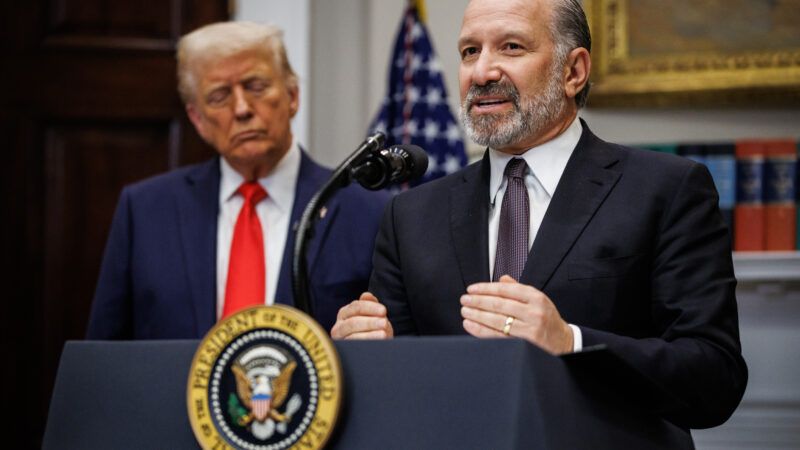New Income Tax Proposal Is Progressive and Unworkable
Commerce Secretary Howard Lutnick says the Trump administration wants to eliminate income taxes for those making $150,000 or less—an unprecedented shift with major consequences.

Secretary of Commerce Howard Lutnick recently announced on CBS News that the Trump administration wants to eliminate income taxes for those making $150,000 a year or less. Were that to happen, only seven percent of U.S. citizens would be left paying income taxes. This would put the entire income tax burden on a tiny minority of people.
This is already the case, to a certain extent. The top one percent of taxpayers currently pay about 40 percent of all income taxes. The income tax code is progressive—tax rates increase as income increases. This new proposal would make the tax code even more progressive, shouldering the tax liability of a small number of affluent citizens.
It should be pointed out that the tax revenue collected from the bottom 93 percent of taxpayers amounts to 24 percent of all income tax revenue, or a little more than $500 billion per year. President Donald Trump has goals to lower taxes and balance the budget. With the budget deficit at a little less than two trillion dollars, balancing the budget while eliminating income taxes for the bottom 93 percent of taxpayers will be virtually impossible unless there are radical changes to Social Security or Medicare, which Trump has (thus far) ruled out. Of course, Trump could plan to raise income tax rates on higher tax brackets—which is not out of the realm of possibility. Trump is a populist, after all.
This will not eliminate the payroll tax burden on working Americans. People will still pay 6.2 percent in payroll taxes on the first $176,100 in income, with the employer paying an equal amount. This amounts to about 30 percent of federal revenue. We also all pay 1.45 percent in Medicare taxes on earned income, with no cap. Payroll taxes are ostensibly meant to fund our own individual Social Security plans, but the revenue is fungible with income tax, corporate tax, and excise tax revenue—there is no such thing as a Social Security "lockbox."
A stated libertarian goal is to eliminate taxes to the extent possible. But libertarians should also care about the fairness of the tax code. Assuming the other tax brackets remain unchanged, a taxpayer that earns $150,001 will face a marginal rate of 24 percent, which will act as a powerful disincentive to earn more money. It is possible, probable even, that Trump thinks revenue collected from tariffs will make up the shortfall. The recently enacted tariffs on China, Canada, and Mexico are expected to raise $120 billion in 2025, a long way from balancing the budget or coming close to eclipsing the revenue lost from tax cuts.
At the time of the election, the Trump economic plan was being sold by Treasury Secretary Scott Bessent as threading the needle with tax cuts and budget cuts and as a path to balancing the budget. It is becoming clear that promised tax cuts (including those on tips, overtime, and Social Security) could exceed the cost savings from the Department of Government Efficiency (DOGE), resulting in an even larger budget deficit. Even while DOGE continues working to cut wasteful and unnecessary programs, coming up with $1 trillion in savings will require a lot more work.
It's hard not to be romantic about tax cuts. The typical single taxpayer making $150,000 a year pays about $25,000 in federal income taxes after accounting for the standard deduction. DOGE has revealed to many that $25,000 in the hands of a taxpayer will be disposed of more wisely than if it had been taken by the government. Deficit hawks often oppose tax cuts on the grounds that they will widen the deficit, which is true in the short term. On a long enough timeframe, however, tax cuts do pay for themselves, and then some, which we learned in the 1990s. But an economist would say that tax cuts for the bottom 93 percent will go mostly toward consumption, while tax cuts on the top 7 percent will go toward saving and investment—the real engine of economic growth.
Flattening the tax code would be a fairer way to cut taxes. Trump's proposal steepens it, such that only the rich will pay taxes at all. This has never been attempted in any developed country—ever—and there will be unintended consequences galore.


Show Comments (109)